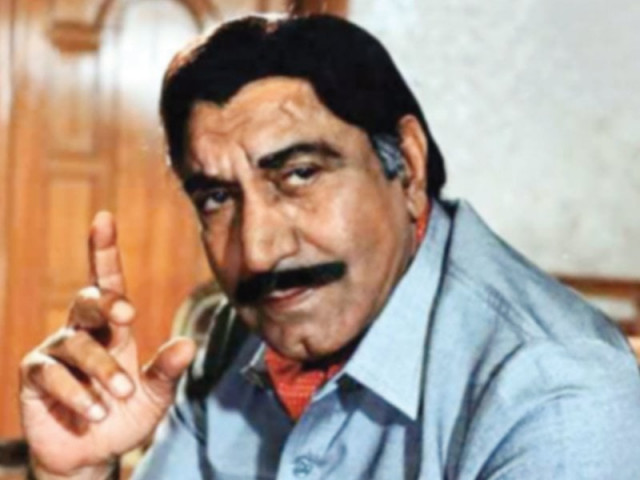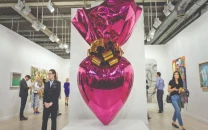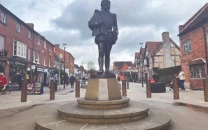No hope for PPP but some for the industry, says Mustafa Qureshi
Actor talks about meeting Bhutto and supporting the party.

Qureshi says PPP has deteriorated, and most supporters like himself have lost interest in the party.
Pakistani film and TV actor Mustafa Qureshi still remembers how he first met Zulfikar Ali Bhutto over four decades ago. At the time, Qureshi lived in Hyderabad and worked for Radio Pakistan. “We were in a hotel for a small meeting where Bhutto was going to speak,” shares Qureshi. “I was introduced to him as a radio artist. Instead of shaking my hand, Bhutto gave me hug,” he adds. “That was the sort of person he was — he had great respect for artists.”
The good times might have passed the film industry by, but the iconic actor remains a strong figure when it comes to the country’s film industry. Today, his schedule is packed with work on tele-plays and dramas, which are now hugely popular.
The underlying story, which supercedes Qureshi’s legendary dialogue “nawa aaya hai, soonia”, is that he was a die-hard political worker for the Pakistan People Party (PPP). But sadly, like many old Bhutto loyalists, he has taken a step back from any PPP activities.
“That party is not the same anymore,” says Qureshi, who had taken interest in politics at an early age. “I have become quiet and passive, and there are thousands of workers in the same position as me.”
“The last term has really made us [Bhutto loyalists] swallow the bitter pill,” says Qureshi. “The party has deteriorated.”

Though Qureshi has received many offers over the years to join other parties and leave PPP, out of loyalty, he simply dismisses such an idea.
Recalling the time when he became the head of PPP’s culture wing, Qureshi says he also looked to run for elections twice. He had once been slated by Benazir Bhutto to run from NA-257, which is Gulshan-e-Hadeed — an area near Steel Mills. But, it was something he was never fit to do because he could never afford it.
“The amount of money that is spent on elections for MPA or MNA is a lot. Most of the money is not legitimate... I could never do that,” says Qureshi.
In this sense, Qureshi explains that he was the ideological worker, who was bred on the resistance of General Ayub Khan’s era. He had seen the wave of popularity created by Bhutto, and supported it against dictatorship.
While his political side is still alive, Qureshi’s work is only related to improving the Pakistani film industry.
The irony that is often pointed out is that as an actor, Qureshi was one of the biggest stars of Punjabi film — yet he is Sindhi. “Pakistan is built on its provinces,” says Qureshi. “The provincial languages were here before Pakistan, and [those] are our mother languages.”
Looking back at the work he has done, he has no regrets. He explains that he has been happy with his various roles, including ones in which he wore a suit or others in which he was an action hero or villain as seen in the hit classic film Maula Jutt.
Moving forward, he is slated to be acting in several television projects as well as some up-coming roles yet to be announced. “I am more selective with my work nowadays, I won’t just do any films, I am looking for something with quality,” adds Qureshi.
“Several things have led to the decline of the film industry,” says Qureshi, pointing out that there are no laws or policies that help the industry. “Indian films are popular and are coming through many platforms.”
His last film Shareeka, a family drama, was an underrated film that had minimal success in the box office. Today, he is a vocal proponent of something or anything that will jumpstart Pakistani film. “I think the work being done today by some of these younger directors is phenomenal,” says Qureshi.
Published in The Express Tribune, April 15th, 2013.
Like Life & Style on Facebook for the latest in fashion, gossip and entertainment.



















COMMENTS
Comments are moderated and generally will be posted if they are on-topic and not abusive.
For more information, please see our Comments FAQ